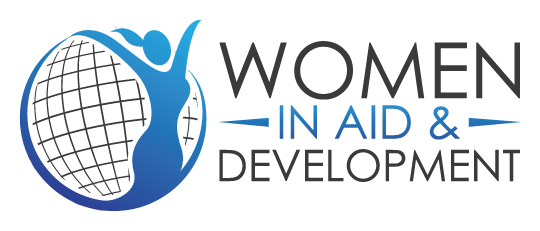Where to now for Humanitarian Aid Funding? Event Recap - October 2025
We are all feeling concerned about the future shape and size of the sector following the withdrawal of USAID and the reduction of funding by many other countries. The question everyone is asking: where can organisations now secure funding for their lifesaving health programs, fundamental education programs, and vital infrastructure projects, and more?
Our October networking series focused on current sources of humanitarian aid and development funding, with speakers sharing innovative strategies and emerging opportunities for securing funding in today’s evolving international aid and development landscape.
Events were held in Melbourne and Sydney, with people joining us ONLINE as well. We are grateful to the incredible speakers who provided valuable and practical insights for the current climate. Here is a recap from each city. Don’t worry if you missed it, you can also watch recordings of each event below!
Melbourne
It was a busy and enlightening evening of discussion as always, with some good networking pre and post, and valuable sharing of insights and experiences, as our three guest speakers joined an audience of more than 20 people at the Oxfam offices in West Melbourne.
The topic of discussion was the very pertinent and current issue of ‘Where to now for Humanitarian Aid Funding’, and our speakers were three women who have their fingers on the pulse of this crucial question, especially given events of 2025 so far, with the slashing of USAID funding globally as well as reductions in the aid budgets of several key developed nations.
Anita Toy, inaugural Executive Director of Myriad Australia, was joined by Emily Wigney and Sabine Reiser, both from Oxfam; Emily, the current Acting Director – Fundraising, Partnerships and Community and Sabine, the Acting Executive Lead in Philanthropy.
The discussion initially took us through an account of these women’s respective journeys, from distinctively different directions, into the development sector, but moved into a conversation about not only the impact being reportedly felt on the ground at project delivery level of drastically reduced funding from traditionally reliable sources, but the more concerning question of where will the flow of funds now come from.
The importance of new donor sources from non-federal funding actors was covered, as well as the increasing importance of traditional fundraising, amid indications that people are shifting their perspectives on the purpose or need, and the necessity of foreign aid funding.
But the more intriguing notion that we explored was that of philanthropy – what state is it currently in , and what does philanthropy look like in 2025? And, as an extension of that, what do 21st-century philanthropists look like? Has a new generation of young philanthropists, with a keen social conscience and new age wealth, begun to emerge globally?
This all made for a great evening together with plenty of the discussion spilling over into a networking-style gathering over nibbles and drinks enjoyed by all. It was also really pleasing from a WiAD perspective to have quite a few volunteers involved on the night, assisting both Jill Scanlon (facilitator) and Chris Franks, our WiAD Chair, who had popped down from Sydney to join the Melbourne event, in making sure the evening was a success.
Jill Scanlon - Melbourne City Leader
You can watch the full Melbourne event here.
Sydney
WiAD Sydney hosted its most recent event on 14th October 2025, centred on the theme ‘Where to now for humanitarian aid funding?’ This discussion highlighted the critical need to diversify funding to aid programs around the world and rethink how we operate within rapidly evolving systems.
We had the pleasure of being joined by three excellent speakers: Yeva Avakyan, Corinne Habel, and Anshu Adhikari. Each speaker brought a unique and interesting perspective to the discussion about the future of aid funding and the current impacts on the sector as a result of recent changes to funding sources.
A particular emphasis throughout the discussion was placed on the importance of trust: both trust from recipient communities that agreements and support will be continued, and trust from organisations that their funding will not be interrupted mid-project. Our speakers also raised points about viewing the current shifts in the sector as an opportunity to challenge pre-existing systems, with an excellent start being to prioritise capacity-building for aid recipients to reduce future dependence on a potentially unreliable international aid sector.
With insightful questions and discussion from our audience, this event was an excellent opportunity to learn more about the state of current funding in the aid and development sector, alongside both a realistic discussion of the sombre impacts and a note of hope for the future.
Our sincere thanks to Yeva, Corinne and Anshu for their time, and to Canva for hosting our event.
Jamie-Lee McLoughlin - Sydney City Leader
You can watch the full Sydney event here.
————————————————————————————————————————————
A massive thank you to all of our amazing speakers, all those who attended and of course, our city leaders, who so generously shared their time to ensure that all events were a success.
